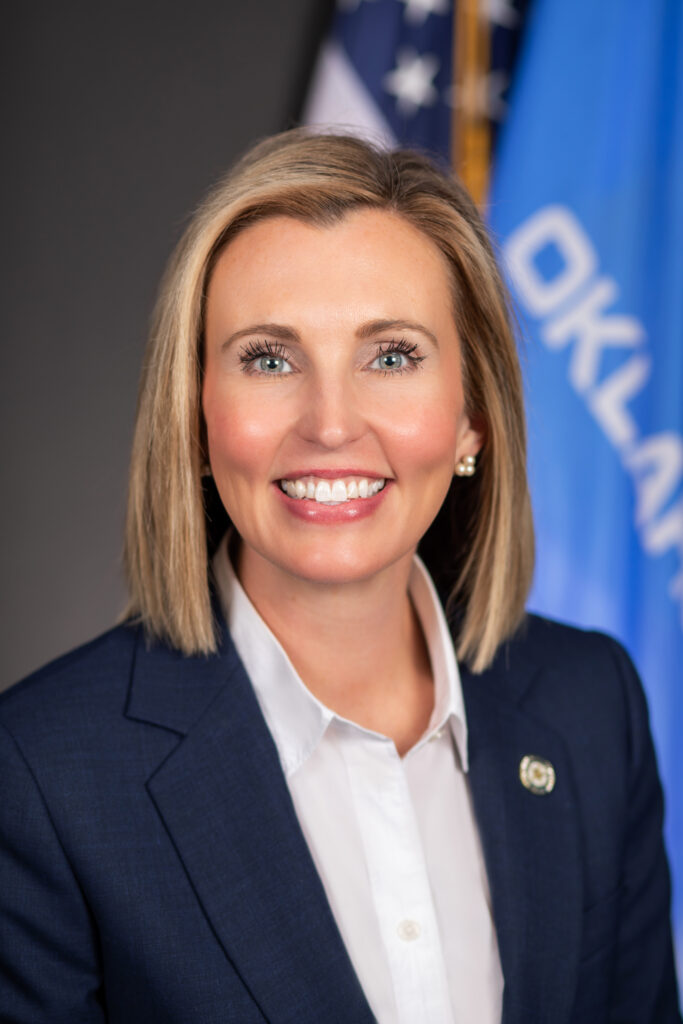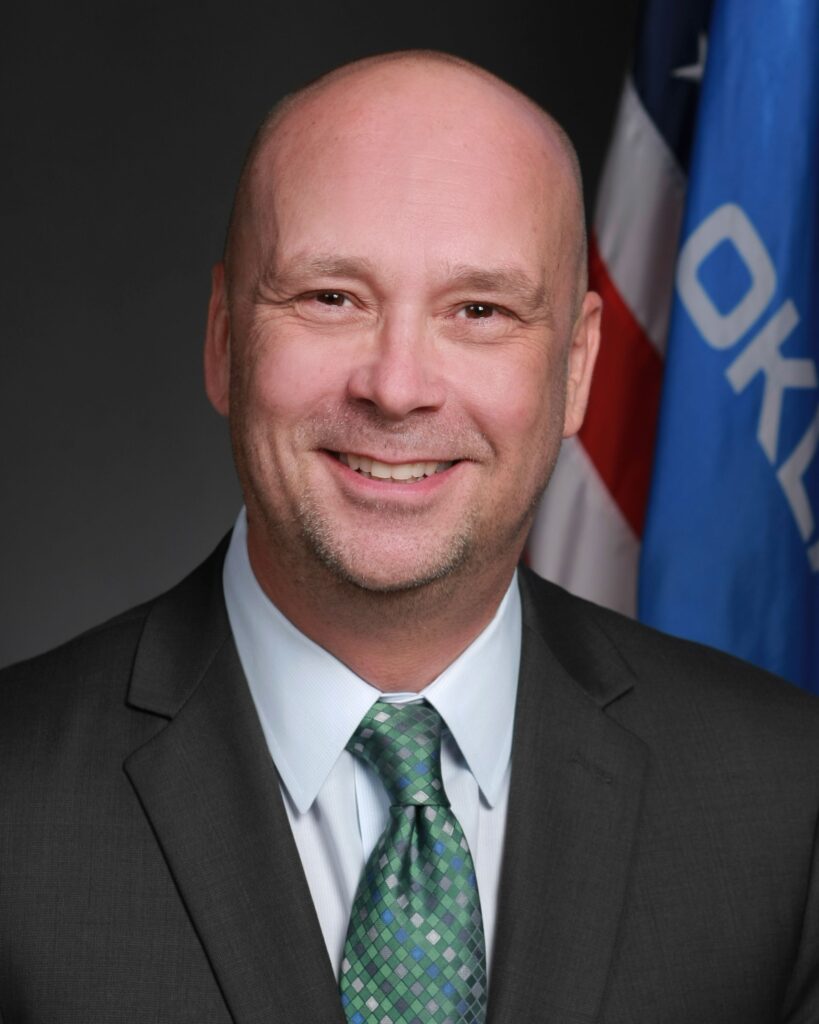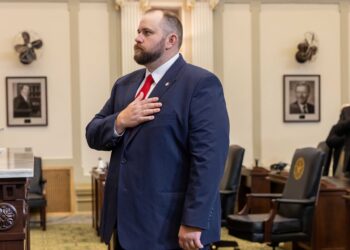OKLAHOMA CITY (OBV) – Two complimentary bills that aim to revitalize the state’s economic development effort by focusing on business recruitment and retention were signed by Gov. Kevin Stitt on Wednesday.

Both Senate Bill 1447 and House Bill 3252 overcame their final legislative hurdles last week.
SB 1447, written by Sen. Kristen Thompson, R-Edmond, and Rep. Mike Osburn, R-Edmond, passed the Oklahoma Senate on May 29 with a 35-8 vote, and succeeded in the Oklahoma House of Representatives on May 30 with a 68-15 vote.
HB 3252, written by Osburn and Thompson, passed the House on May 29 with a nearly unanimous 92-2 vote, and cleared the Senate on May 30 with a vote of 35-9.
“We have worked for over a year on this project. These specific pieces of legislation really began their true drafting probably in late August, so, it has been a journey,” Thompson said. “It is always a good feeling to see something cross the finish line. We are excited that we got it through.”

The bills were amended during the legislative process.
“I’m thrilled we were able to get both of those bills over the finish line this year, as far as the legislature goes. We can only control what we can control,” Osburn said. “Where both bills ended up as far as the policy that was in them, we’re on the right track. I don’t think either of them go as far as folks would like for them to go, but it’s a good first step.”
Thompson says she and Osburn spent much time obtaining input from the state’s business community while developing them.
“I know that the governor is very focused on making sure Oklahoma continues the journey to be a top 10 state, and I think that these bills are critical pieces of making Oklahoma a top 10 state, not only in economic growth, but also business climate and strategic partnerships for our local communities,” she said.
SB 1447 establishes the Oklahoma Office of Economic Development, Growth and Expansion (OkEDGE) and the Division of Community Outreach and Revitalization Enterprise (CORE) within the Oklahoma Department of Commerce.
OkEDGE will serve as the state’s leading entity in matters pertaining to economic development, with a focus on recruiting companies to either expand or start in Oklahoma, as well as retaining companies that already exist in Oklahoma. Its duties will be as follows:
- Being empowered to strategically drive opportunities for economic growth and diversification across the state;
- Collaborating with local, regional and state entities;
- Coordinating the funding and investment activities of each element of the state’s economic development efforts and marketing campaigns to achieve better results for the state’s recruitment and retention of businesses; and
- Acting as the principal point of contact regarding investment in this state for public officials, businesses and the public.
CORE will focus on the long-term development of local communities to increase competitiveness and enhance economic opportunities. CORE’s duties will pertain to local economic opportunities and economic development, including, but not limited to the following:
- Creating new and higher-quality jobs for the people of the state through long-term development of local communities;
- Maintaining communication of information between the department and communities through regional organization and representaiton;
- Carrying out policy development and research in support of the long-term competitiveness of this state;
- Providing technical assistance to local communities in securing federal funding, incentive availability and community development;
- Providing assistance and funding in development of potential sites for economic development;
- Coordinating with other state agencies deploying federal and state funds for infrastructure development including, but not limited to, the Department of Transportation, the Oklahoma Water Board and the Oklahoma Broadband Office; and
- Assisting in compliance with the laws and regulations of economic incentives and economic development initiatives.
The original version of SB 1447 envisioned an entity that worked within the Department of Commerce, but was solely focused on economic development through business retention and recruitment. The entity would have been managed by a board of directors.
The bill was amended, with changes making OkEDGE part of Department of Commerce operations and scrapping the board of directors. The amended version of the bill added CORE to focus on developing Oklahoma communities so to make them more desirable for companies to remain in.
Osburn and Thompson said the essence of SB 1447 remains the same, with OkEDGE and CORE cooperating through unique functions to grow the state’s economy.
“They’ll be two separate divisions so that each division can be laser-focused on what it is that they do. The business recruiting and retention will be laser-focused on business recruiting and retention, and the community development side of things, which is kind of the rest of what Commerce does, can be laser-focused on that,” Osburn said. “They will work together, but they will have their singular focus, and I think that will work out way better.”
HB 3252 was originally written to modernize the Department of Commerce’s statutory duties. It modified the department’s mission statement and duties and the state’s five-year economic development plan. It also ended the Commerce Department’s tenure as Oklahoma’s official liaison agency for strategic economic development and business recruitment, instead making Commerce a technical assistance resource for local communities seeking federal funding opportunities.
Those efforts will remain within Commerce, but be focused through CORE, if the bill is signed into law.
Thompson and Osburn developed the idea of OkEDGE after major companies, including Panasonic, Tesla and Volkswagen, chose to not build factories in Oklahoma. The entity will work to dissuade major companies from leaving Oklahoma. Michelin representatives announced late last year that the company was closing down its factory in Adrmore, which employed around 1,400 Oklahomans.
OkEDGE will work to ensure that no other companies choose to leave Oklahoma.
“Existing businesses and communities can get the support they need from the state so they can be successful and will stay in Oklahoma,” Osburn said earlier this year. “The new commerce will provide communities with technical assistance on infrastructure, site development, federal funding, grant writing, economic incentives, economic analysis and will coordinate with other state agencies like the Department of Transportation, the Water Resources Board, the Broadband Office, to create a strategy for and support necessary infrastructure improvements.”
Lt. Gov. Matt Pinnell fully supported Thompson and Osburn in their development of the legislation.
“This is not legislation that we just put together over the last couple of weeks. It has been a nine, 10 month process of talking to stakeholders across 77 counties, rural, urban, pulling in legislators from day one, not day five, not day 10, not two months into the process, but having the legislative bodies obviously there at the beginning of the process,” Pinnell said earlier this year. “I think it has prepared us to be very successful this legislative session to get this legislation across the finish line.”

















